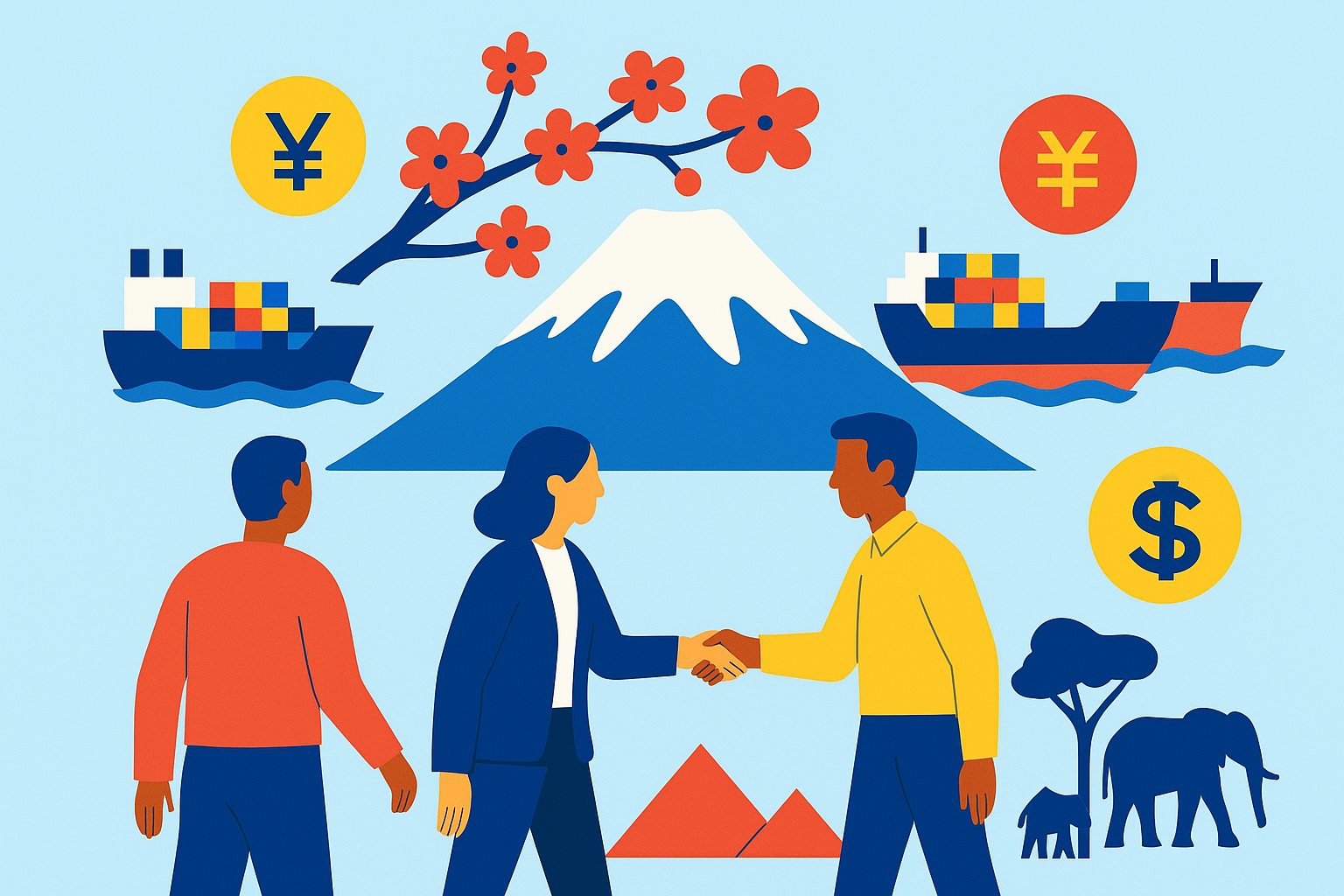Asia Pacific News
LAST UPDATE: May 30, 2025
Core inflation in Japan capital hits 2-year high, keeps rate hike chance alive
Tokyo’s core inflation rose to 3.6% in May 2025, the highest in two years, driven by a 93.2% surge in rice prices and broader service cost increases.
Insight
The persistent inflation, especially in essential goods like food, indicates that cost pressures are becoming entrenched in Japan’s economy. This trend challenges the Bank of Japan’s (BOJ) previous stance of maintaining ultra-loose monetary policy. The data suggests that the BOJ may need to consider rate hikes sooner than anticipated to prevent inflation expectations from becoming unanchored. However, the decision is complicated by external factors such as U.S. tariffs and a recent decline in factory output. The BOJ faces a delicate balancing act between supporting economic growth and curbing inflation.
BOJ aware firms continue to hike prices, wages, Governor Ueda says
BOJ Governor Kazuo Ueda acknowledged that companies are persistently raising prices and wages, signaling a shift towards sustained inflation.
Insight
Governor Ueda’s remarks highlight a significant change in Japan’s economic landscape, where businesses are increasingly confident in passing costs onto consumers. This shift suggests that inflation is becoming more demand-driven, supported by wage growth, rather than being solely cost-push. The BOJ may interpret this as a sign that its inflation target is being met sustainably, potentially justifying a move away from its accommodative policies. However, the central bank must carefully assess whether this trend is widespread and durable before making policy adjustments.
Trump-Ishiba Call Gives Akazawa Momentum for Trade Talks
A phone call between President Trump and Prime Minister Ishiba has bolstered Japan’s trade negotiator Ryosei Akazawa’s position ahead of upcoming tariff discussions.
Insight
The direct communication between the two leaders underscores the importance both nations place on resolving trade tensions. For Japan, the call provides political backing for Akazawa, strengthening his negotiating stance. It also signals a willingness on both sides to engage constructively, which could lead to compromises on contentious issues like automobile tariffs and defense spending. However, the outcome will depend on the negotiators’ ability to translate this momentum into tangible agreements that address both countries’ concerns.
US Trade Team to Visit India Next Week, Official Says
A U.S. trade delegation is scheduled to visit India next week to advance discussions on an interim trade agreement before the July 9 deadline.
Insight
The upcoming visit reflects the urgency both nations feel in addressing trade imbalances and tariff disputes. For the U.S., securing an agreement with India aligns with its broader strategy to strengthen economic ties in the Indo-Pacific region. India’s participation indicates its interest in mitigating tariff impacts on its exports. The talks will likely focus on sectors like agriculture, technology, and defense. Success in these negotiations could pave the way for a more comprehensive trade partnership, enhancing economic cooperation between the two democracies.
Wang Yi Urges Global Dialog as China Backs Hong Kong for Mediation Hub
Chinese Foreign Minister Wang Yi advocated for international dialogue and announced support for establishing Hong Kong as a global mediation center.
Insight
China’s endorsement of Hong Kong as a mediation hub serves multiple strategic objectives. It positions China as a proponent of peaceful conflict resolution, potentially improving its international image amid geopolitical tensions. Elevating Hong Kong’s role could also reinforce the city’s status as a global financial and legal center, countering narratives about its autonomy erosion. However, skepticism may persist among international stakeholders regarding China’s commitment to impartial mediation, given its domestic policies and regional assertiveness. The initiative’s success will depend on China’s ability to demonstrate genuine support for open and fair dialogue.
Leftwing ‘brawler’ on verge of South Korea presidency
Opposition leader Lee Jae-myung, known for his combative style, leads polls ahead of South Korea’s presidential election, positioning himself as a unifying figure amid political turmoil.
Insight
Lee’s rise reflects public desire for change following the impeachment of conservative President Yoon Suk Yeol. His shift toward centrist policies aims to broaden appeal, though his past legal issues and populist rhetoric may polarize voters. Lee’s potential presidency could redefine South Korea’s political landscape, emphasizing economic growth and moderation while navigating complex foreign relations with the U.S., China, and Japan. His leadership style may resonate in a nation seeking stability after recent upheavals.
France Inks Deal with Singapore as Macron Courts Southeast Asia
France and Singapore signed agreements to enhance cooperation in nuclear energy, clean energy, cyberspace, and defense, as part of President Macron’s efforts to strengthen ties with Southeast Asia.
Insight
This partnership underscores France’s strategic pivot toward Asia, aiming to diversify alliances and counterbalance China’s regional influence. By collaborating with Singapore, a key ASEAN member, France seeks to bolster its presence in the Indo-Pacific. The agreements reflect mutual interests in sustainable energy and cybersecurity, areas critical to both nations’ economic and security agendas. This move may encourage other European countries to engage more deeply with Southeast Asia, fostering a multipolar balance in the region.
Thai economy improved in April on increased manufacturing, central bank says
Thailand’s economy showed signs of improvement in April, driven by a rebound in manufacturing and increased exports, though U.S. tariffs pose risks for the latter half of the year.
Insight
The uptick in manufacturing and exports indicates resilience in Thailand’s economy, yet looming U.S. tariffs could dampen this recovery. The central bank’s maintained GDP growth forecast suggests cautious optimism. However, the potential 36% U.S. tariff, if not renegotiated, threatens export-dependent sectors. Policymakers must navigate these external pressures while fostering domestic demand to sustain growth. Diversifying trade partners and enhancing competitiveness will be crucial in mitigating tariff impacts.
US ‘Respectfully’ Urges Australia to Boost Its Defense Spending
U.S. Defense Secretary Pete Hegseth encouraged Australia to increase its military spending, emphasizing the need for allies to share the burden of regional security.
Insight
The U.S.’s call for Australia to boost defense spending reflects a broader strategy to strengthen alliances amid rising Indo-Pacific tensions. By urging greater investment, the U.S. aims to ensure collective security and deter potential adversaries. Australia’s response will signal its commitment to regional stability and influence future defense collaborations. Balancing domestic priorities with international expectations poses a challenge for Australian policymakers. Enhanced defense spending could also stimulate local industries and technological advancements.
RBNZ Needs More Time to Decide on Path for Cash Rate, Silk Says
The Reserve Bank of New Zealand (RBNZ) signaled a pause in its easing cycle, stating that future rate decisions will depend on economic data and global developments.
Insight
The RBNZ’s data-dependent approach highlights the uncertainties facing New Zealand’s economy, including global trade tensions and domestic inflation pressures. By maintaining flexibility, the central bank aims to balance growth support with price stability. The recent rate cuts have provided stimulus, but further adjustments will require clear evidence of economic trends. This stance allows the RBNZ to respond promptly to changing conditions, ensuring monetary policy remains effective and responsive.


